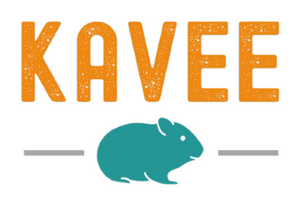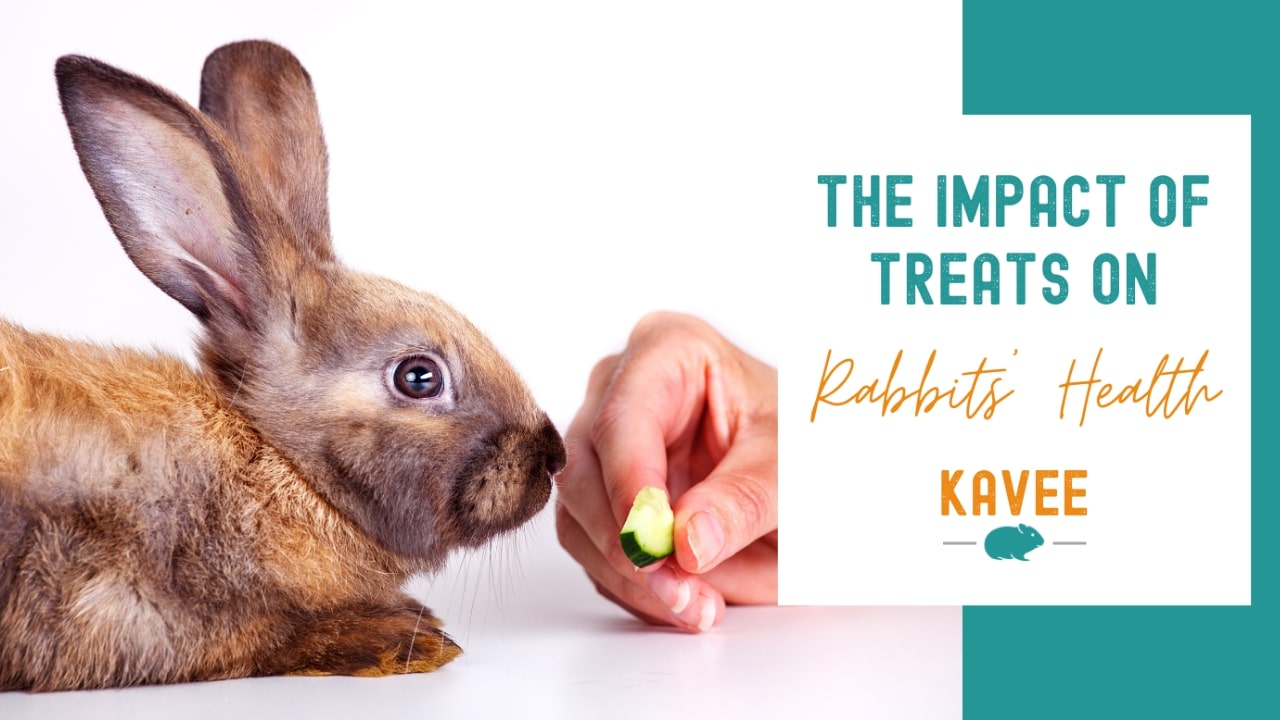It’s no secret: rabbits love to nibble! When you provide your bunnies with some yummy treats, they will gladly gobble up anything you offer them.
However, just like a dog would eat a whole bag of dog food if it's accidentally left open… when left to their own devices, your beloved buns simply don’t know where to stop!
In this article, we’ll take a look at what are some safe rabbit treats you can hand out, and the right portion sizes, as well as treats you should steer clear of. We’ll also cover how to find the right balance of treats and a healthy rabbit diet, so read on to discover more.

The Role of Treats in a Rabbit's Diet
Treats play an important role in your bunny’s diet - so long as they’re safe and given in moderation. Just like hoomans would struggle with a life of zero indulgences, your bunnies would also be disappointed if they received no treats!
Giving treats to rabbits helps provide mental stimulation and variety to their meals, complementing their diets with many much-needed nutrients. Just make sure to avoid highly processed, sugary snacks that are often marketed towards rabbits.
However, remember that a rabbit’s hunger knows no limits, so it’s up to you to moderate their treats. Don’t let that sweet face trick you, too many treats are only bound to cause health problems, regardless of how much hoppiness they bring!

Safe Treats for Rabbits
Bunnies are herbivores so thrive on a high-fiber diet that consists predominantly of grass-based hay. The occasional treat will be well-received by your buns, however, you should prioritize healthy options!
The best kinds of treats for rabbits include:
- Bite-sized chunks of fresh fruits and vegetables (pips and stones removed).
- Unsweetened dried fruit and veggie pieces.
- Leafy greens and herbs.
- Baked flavored hay treats (look for grass-based hay).
- Dried herb blends (sprinkle some onto your rabbit’s hay to encourage them to eat more of it!).
You can give rabbits around 1-2 tablespoons of treats a day, but this may vary based on the size, breed, and activity levels of your bunnies.
A bunny’s digestive system is extremely sensitive, so as with anything new that you’re introducing to their diet, start off slowly and gradually increase the quantity. This way, there shouldn’t be any upset tummies!

Fruits and Vegetables That Are Safe for Rabbits
Here is a list of fresh fruits and veggies that you can safely feed to your bunny as treats:
- Apples (remove the pips as they are poisonous)
- Apricot (just remove the pit)
- Asparagus
- Banana
- Bell peppers
- Blackberries
- Blueberries
- Brussel sprouts
- Carrots
- Cherries (make sure to destone)
- Cucumbers
- Grapes
- Green beens
- Kiwi fruit
- Mango
- Melon
- Nectarine
- Oranges
- Papaya
- Peaches
- Pears
- Pineapple
- Plums (just remove the stones)
- Pumpkin (remove seeds, guts, and rinds)
- Raspberries
- Strawberries
- Tomatoes (remove the leaves and make sure it's ripe)
- Turnips
- Zucchini
Safe Leafy Greens for Rabbits
It may not sound like much of a treat to us hoomans, but fragrant herbs and leaves are quite the treat for our fluffy friends! In addition to their regular daily serving of leafy greens, you could add a few extra throughout the day as a tasty snack:
- Arugula
- Basil
- Bok choy
- Cabbage
- Carrot tops
- Cilantro
- Dandelion greens
- Dill
- Kale
- Lemongrass
- Mint
- Oregano
- Parsley
- Romaine lettuce
- Rosemary
- Spinach
- Spring greens
- Thyme
- Turnip greens
- Watercress

Treats to Avoid Giving to Your Rabbit
If you’re new to rabbit parenthood, it can be difficult to know at a glance which foods are safe for your rabbits and which aren’t. Generally speaking, you should avoid the following foods:
- Any processed human foods.
- Yogurt treats (they have an incredibly high sugar content that could lead to life-threatening gastrointestinal issues, and can also cause tooth decay).
- Colorful pellet mixes (these are generally full of fat and no good for your bunny’s health!).
- Foods featured in the list below.
Unsafe Foods For Rabbits That Should Always Be Avoided
There are some natural foods that should never be given to bunnies as they are toxic or present a choking hazard. These include:
- Avocados
- Beans or legumes
- Chocolate
- Corn
- Currants
- Dates or figs
- Fruit pips/stones
- Grains
- Meat or dairy products
- Mushrooms
- Nuts or seeds
- Olives
- Raw onions, leeks or garlic
- Potatoes
- Rhubarb
The Impact of Overfeeding Treats
Overfeeding treats (even healthy ones) can lead to health problems, including obesity, dental issues, and digestive problems. No matter how much those adorable little eyes plead with you for just a tiny bit more, moderation is key!
Eat too much sugar, and it’s no surprise that your buns will start to gain weight. No matter how much they hit the exercise pen, obesity can soon lead to less movement, muscle atrophy, and heart problems.
Plus, if you offer your bunnies too many delicious treats, they won’t eat enough hay. It may not be quite as exciting, but hay is absolutely crucial to:
- Help grind down a bunny’s ever-growing teeth.
- Keep your bunny’s digestive system in good working order.
A lack of hay in their diet could eventually lead to Gastrointestinal Stasis (or GI Stasis), a condition where your bunny’s gut stops moving properly, potentially shutting down and proving fatal.

Balancing Treats with a Healthy Diet
The key to providing a balanced diet for your rabbits is to have a good understanding of what their daily food intake should look like. Treats should supplement your bunny’s diet and consist of no more than 1-2 tablespoons a day.
A rabbit's daily nutrition should predominantly focus on grass hay, fresh leafy greens, and a moderate portion of pellets. The exact amounts will vary based on your bunny's age, lifestyle, and weight.
Pro-tip: Combine snack time with mental enrichment by scattering your bunny’s treats in their hay so that they're encouraged to forage them out. Or hide them in a logic puzzle or tie them in a cloth, and watch the cogs turn in your rabbit’s brain as they work out how to get to them!

Conclusion
Like a hooman choosing between ice cream and salad, bunnies are serial grazers and will always prioritize sweet treats over healthier options. However, this is no good to your rabbit’s health, so it’s our responsibility as pet parents to make sure they get what they need - not necessarily what they want!
When rabbit treats are healthy and given in moderation, they can greatly benefit your rabbit diet, as well as providing mental stimulation to keep your sweet floofs hoppily occupied! Just make sure to check whether they are bunny-safe first, and always incorporate new foods into their diet gradually.
Here at Kavee, the health and wellbeing of our bunnies always come first, so our range of C&C rabbit cages and fleece liners have been designed to make bunny life as easy & pawsome as possible. So take a peek to find a treat for you and your buns that you can absolutely indulge in, guilt-free!





